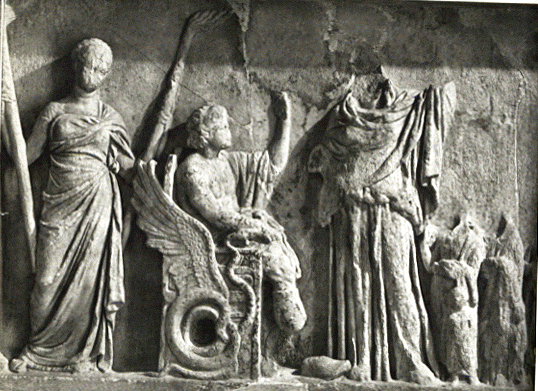

Demeter was overjoyed to find her daughter with her and was ready to remove all disasters from the earth but on coming to know that she had tasted the food of the dead, all her rejoiced dashed to the grounds. But through much cajoling during the past year, Hades had managed to persuade the miserable girl to eat seed from a pomegranate–the food of the dead.” (Demeter and Persephone: quoted in pa./demeterpersepho_rupu.htm) Hades complied with Zeus’s instructions but forced Persephone to eat one seed of pomegranate from the food of the dead, which could compel her to return after meeting her mother. “Finally Zeus sent Hermes, the messenger god, to demand that Hades return Persephone to her mother.

He forced Hades to let Persephone meet her mother on the surface of the earth so that Demeter could let the earth grow trees, shrubs, vegetables, fruits, grass, leaves, and flowers making it pageant and gorgeous again. Consequently, Zeus had to interrupt the situation to save the people from turmoil and destruction. The situation remained the same for one year and the population started dying of starvation. But the anger of Demeter turned greenery into futility and barrenness and people became sad. There was everything green and blossoming and people were happy and prosperous. In a state of utter sorrow and grief, she caused famine everywhere on the earth. Demeter also consulted the Olympic gods including Apollo, though none of them could help out the dejected mother. Since Demeter found her beloved daughter mislaid, she started the search for her on the whole earth, but it was quite disappointing and dispiriting to note that Persephone was nowhere on the surface of the earth. Hades intended to make the exceptionally charming Persephone his bride and the queen of the underworld. She had unabated love for her beautiful daughter Persephone, the Maiden of Spring, who was abdicated by Hades, the god of the underworld, while she was gathering the buds and flowers. Demeter was responsible for the growth, fertility, and bloom of the earth. Similarly, Demeter is the Greek goddess of seasons, fertility, harvest, agriculture, and grains, whose Roman cognate is thought to be Ceres out of which the word cereal has been derived. Zeus was stated as the king of gods, who resided on Mt. For example, Venus was the goddess of love, and her son Cupid was considered as the god of love Pan was the god of the jungle, while Hymen was attributed to the domain of marriage, Apollo as the god of sun and Mars was the god of thunder, violence, and war. Every god maintains his domain and has complete and exclusive power over it. The norms, mores, values, conventions, rituals, and traditions prevailing in their culture and civilization have been elaborated in an epic form where gods, goddesses, and kings look engaged in different conflicts, competition, and conspiracies.

Greek mythology discusses the stories and tales of gods, goddesses, heroes, and kings of ancient Greece.


 0 kommentar(er)
0 kommentar(er)
